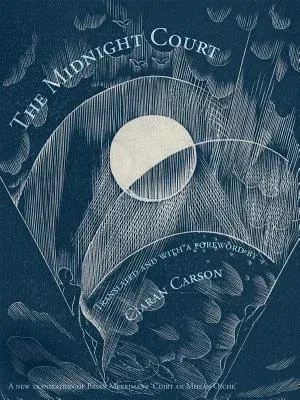Originally written in the Irish language by the 18th-century poet Brian
Merriman (circa 1745-1805), The Midnight Court is here translated by one
of Ireland's distinguished contemporary poets, Ciaran Carson. This
extended satiric poem assesses the growing economic, political, and
familial constraints of late 18th-century Catholic Ireland under British
colonial rule, while subversively playing on the tradition of the
aisling (or vision) poem in which a beautiful woman represents Ireland's
threatened sovereignty. At the beginning of The Midnight Court, a
dreadful female envoy from the fairies appears in a dream to the
unmarried poet. She summons him before the court of Queen Aoibheall in
order to answer charges of wasting his manhood while women are dying for
want of love. He listens to complaints that vary from the celibacy of
the clergy to marriages performed between old and young for purely
economic reasons. In all their bawdy tales, the female courtiers praise
fertility, as well as sexual fulfillment, and condemn the conventions of
the day. At last the Queen pronounces judgment on the poet, who awakens
as he is being severely chastised by all of the women of the court.
While containing many insights into 18th-century social conditions, The
Midnight Court is also an exuberant, even jaunty work of the comic
imagination. As the translator Ciaran Carson states in his foreword:
"The protagonists of the 'Court, ' including 'Merriman' himself, are
ghosts, summoned into being by language; they are figments of the
imagination. In the 'Court' the language itself is continually
interrogated and Merriman is the great illusionist, continually
spiriting words into another dimension."

